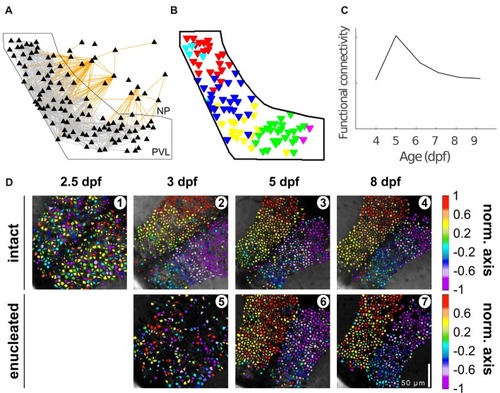Figure 3
- ID
- ZDB-FIG-190723-2202
- Publication
- Marachlian et al., 2018 - Principles of Functional Circuit Connectivity: Insights From Spontaneous Activity in the Zebrafish Optic Tectum
- Other Figures
- All Figure Page
- Back to All Figure Page
|
Tectal functional connectivity and neuronal assembly characteristics change over development. |

